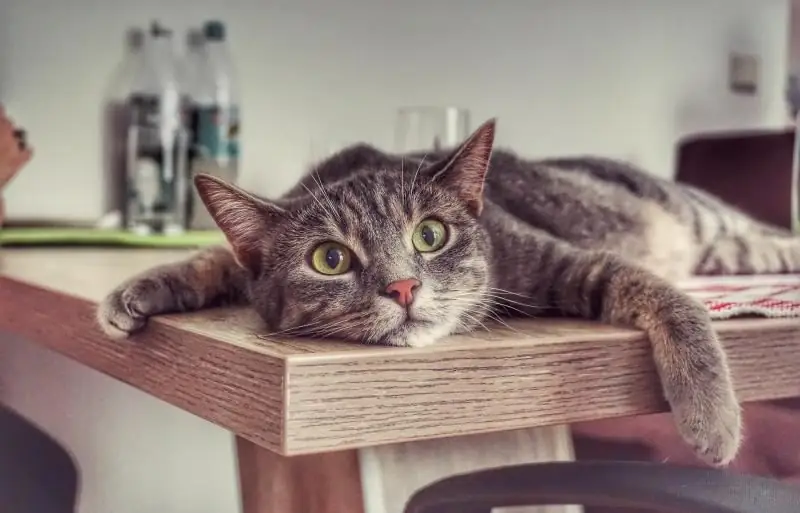
Table of contents:
- Author Bailey Albertson albertson@usefultipsdiy.com.
- Public 2024-01-17 22:26.
- Last modified 2025-06-01 07:32.
Life expectancy of cats: how much is measured out to our pets

The question of the lifespan of a cat probably worries every owner of a domestic purr. However, there is so much false information and outright nonsense about this that it makes sense to study this topic more thoroughly.
Content
-
1 Cat's lifespan: biological and actual
- 1.1 Average lifespan of a street cat
- 1.2 How many cats live on average at home
-
2 Factors affecting the duration of the "cat's age"
-
2.1 Breed
- 2.1.1 Photo Gallery: Breeds Based on Natural Mutations
- 2.1.2 Rating of long-lived breeds
- 2.1.3 Table: Life Expectancy of Cats by Breed
- 2.1.4 Photo Gallery: Long-Liver Cat Breeds
- 2.2 Nutrition and lifestyle
- 2.3 Psychological comfort
- 2.4 Heredity
-
2.5 Acquired diseases
2.5.1 Video: a very old cat
-
2.6 Sexual activity
- 2.6.1 Video: Veterinarian on neutering animals
- 2.6.2 Reviews: experts on the effect of neutering on cat longevity
- 2.7 Video: what determines the life span of a cat
-
-
3 How to prolong the life of a pet: we follow the rules, avoid mistakes
- 3.1 An attentive owner is the key to a happy pet life
-
3.2 Common mistakes in keeping a pet
- 1 Feeding on demand
- 3.2.2 Walking unattended
- 3.2.3 Loneliness
- 3.2.4 Frequent bathing
- 3.2.5 Requiring the cat to behave like a dog
- 4 Owner reviews about the lifespan of cats and cats
Cat's lifespan: biological and actual
From the point of view of biology, the forest cat (Felis silvestris), of which the domestic cat (Felis silvestris catus) is a subspecies, can live twenty years or even more, but such a life span for a particular individual is as difficult to reach as a hundred years for a person. There are a huge number of factors that reduce the years measured by nature, and almost none that could increase them.

Biologically speaking, a cat can live twenty years or more.
At the same time, the indicator "average life span of a cat" in itself does not say anything, since it is calculated according to the usual rules of the arithmetic mean. A control group of animals is taken, the age at which the death of each of them occurs is recorded, the results obtained are summed up and divided by a specified number of individuals.
With this approach, kittens that died in infancy and very young cats that died in an accident (hit by a car, torn apart by dogs, poisoned by the ubiquitous doghunters) greatly affect the overall indicator of "average cat life" in the direction of its decline.

There are many factors that prevent a cat from living to old age.
Now, having learned to correctly relate to the concept of "average life expectancy", we can move on to statistics.
Average lifespan of a street cat
Under natural conditions, if one can call city basements and heating mains, cats live on average 4-5 years. Sometimes more optimistic figures of 7-10 years are named, but I think that in this case we are talking about the upper limit of possible survival.
According to statistics, stray cats give birth to offspring twice a year, starting at eight months of age. The average number of kittens in a litter is five. Thus, one animal gives birth to up to fifty kittens in its life. Scientists have calculated that within five years, one cat, along with all its female kittens, increases its own species by two hundred thousand individuals.

Cats are naturally very fertile
Of course, with such fertility, our streets and yards should have been packed with cats. But nothing like that happens. The reason is obvious: the overwhelming majority (according to some sources, up to 90%) of cats simply do not live to maturity, greatly reducing, as already mentioned, the average life span of the species.
How many cats live on average at home
Since the presence of shelter and a "guaranteed" portion of high-quality food, as well as the absence of risks associated with infectious diseases, interspecies struggle, the already mentioned cars and dogs, significantly reduces the likelihood of death at a young age, the average life expectancy of a domesticated (in every sense of the word) cats are much closer to the biological aging age. Animals kept at home live on average 12-15 years.

A cat that has lived for 24 years can rightfully be considered a long-liver
But let us clarify again: the animal dies from old age much later, and the average indicator is underestimated due to those individuals that die before they reach the "gray hair".
Factors affecting the duration of the "cat's age"
Of course, the better conditions are created for life, the longer it will last. But unfortunately, other factors also affect the measured time. We have already mentioned that cats, like humans, according to the apt expression of M. Bulgakov, are "sometimes suddenly mortal", but there are other moments that affect the life span of an animal.
Breed affiliation
Perhaps the connection between life expectancy and the breed of a cat is shrouded in most myths. Seriously talking about the relationship between these two concepts is like looking for the reasons for the different life expectancy of people in their nationality.
Most veterinarians agree that the breed has no effect on the average lifespan of cats. However, some clarify an important detail: artificially bred breeds, on average, live less than their counterparts, since they have a tendency to certain hereditary pathologies.
Photo gallery: breeds based on natural mutations
-

Munchkin - Munchkin is a breed with congenital skeletal pathology, the question of good health remains open here
-

Devon rex - Many rex mutations are associated with certain inherited diseases
-

Scottish lop-eared - Scottish Fold cats have defects in the development of cartilage tissue
-

Manx - Manx is an Irish tailless cat that in some cases produces non-viable offspring
-

Two sphinxes - Hairlessness is a genetic mutation that has a negative impact on animal health.
From myself I would like to clarify. Not every artificially bred breed is “problematic” in terms of longevity. Poor heredity can be characteristic of breeds based on natural mutations (sphinxes, rexes, lop-eared, tailless, short-footed cats), as well as those in the breeding of which closely related crossbreeding was used illiterately. Sometimes oriental cats (Siamese and Oriental) are noted as centenarians, but this statement does not seem to be sufficiently substantiated. Yes, my Thai cat lived to a ripe old age, and I decided to put it to sleep when the animal simply could not move on its own, saw nothing, walked under itself and, apparently, suffered greatly from a slowly growing breast tumor (as the veterinarian told me, operable,but general anesthesia for an 18-year-old animal would be tantamount to death). However, I do not think that such a venerable age was given to my cat by her breed. Rather, it was about initially good health and a very calm character: the last ten years of its life, the cat spent almost 24 hours a day in a state of sleep, waking up sluggishly only in order to eat, relieve natural needs and slightly exercise. By the way, about the Abyssinian cats, classified as breeds with a low life expectancy, I can also express my assumption. Abyssinians are real fidgets. All the abics I have met were the complete opposite of my phlegmatic Thai. At the risk of provoking condemnation (probably partly fair), I confess that over the past five years I had to bury three Abyssinians, two of whom,in spite of all the precautions taken, they managed to fall out of the window, and one was quite a kitten, and the other was a fully adult four-year-old cat. Returning to the arithmetic mean, there is no doubt that the percentage of survival to old age in such breeds is relatively low.

Abyssinians are real fidgets
Long-lived breeds rating
The rating of long-living cat breeds proposed below is based on data from various sources and feedback from owners, but it is still worth considering it very skeptically.
Table: Life Expectancy of Cats by Breed
| Cat's lifespan (years) | Analog by human standards (number of years) | Breed name |
| 9-11 | 52-60 |
|
| 10-12 | 56-64 |
|
| 13-14 | 68-72 |
|
| 15-16 | 76-80 |
|
| 17 | 83 |
|
| eighteen | 86 |
|
| 19 | 90 |
|
| twenty | 92 |
|
Photo gallery: long-lived cat breeds
-

American shorthair - American Shorthair is in excellent health
-

Oriental cat - The oriental cat is a close relative of the Siamese
-

Siamese cat - Siamese cat is an indigenous breed of Thailand
-

Russian blue - Russian blue - a cat originally from Arkhangelsk
Food and lifestyle
These two factors, oddly enough, also have little effect on life expectancy (and not only for cats). In any case, there seems to be no direct relationship between what we call a "healthy lifestyle" and the number of years measured for a cat.

Exercise does not increase life expectancy
The Thai cat I have already mentioned has lived a very long life by feline standards, eating exclusively dry food of economy class and canned food of the same brand. Not that I felt sorry for something more "decent" for my pet, just the food she initially chose was almost a luxury by the standards of that time (remember: the cat died at the age of 18), but when a truly high-quality products, the stubborn animal completely refused to even try something new. Yes, and from the generally accepted ideas about a healthy lifestyle, as already mentioned, the habits of our secret people were very different (unless, of course, we take into account the well-known formula that sleep is health).
And yet, what has been said does not mean at all that the cat can be fed anyhow and with anything. Improper nutrition, deficiency of vitamins and essential mineral salts, as well as physical inactivity, constant stay in uncomfortable (in terms of temperature, humidity, air purity) conditions - all this contributes to the development of various chronic diseases, which, if not shorten the life span of a pet, they definitely make her less happy.
One important point should be added to the above. Life expectancy is influenced not so much by the quality of food as by its quantity. An overweight cat is less likely to survive to old age than its lean cousins.

Intemperance in food can shorten the life of a pet
But constant malnutrition and the protein-energy malnutrition developing against its background also lead to premature aging and thus shorten life expectancy.
Of course, domestic cats are less prone to overeating than Americans, for whom this problem is really very relevant, and starvation threatens our pets even less, but the fact remains: moderate portions will provide the animal with a longer life, and regular overeating will shorten it …
Psychological comfort
The situation with this factor is even more complicated. Of course, one can argue for a long time about the fact that cats that they love live longer, but there is no scientific evidence for such conclusions.
And yet, this scary story does not give grounds to say that happy cats live longer. However, it is definitely better, and this circumstance alone is worth taking care of not only the physical, but also the psychological comfort of your pet.

Positive emotions make life better, even if they don't make it longer
Heredity
The individual characteristics received by the animal at birth as a "gift" from the parents, along with the case, are the determining factor on which the life span of a given individual depends.
Heredity is not only congenital diseases or a predisposition to them. We are talking about the general level of work of the whole organism as a whole, the immune system, debugging and balance of the functioning of organs and systems.
Perhaps the impact of this factor on longevity is even deeper than we think. Thus, the most interesting studies carried out jointly by Japanese, Canadian and American scientists led to the conclusion that there are certain gene mutations that can both prolong and shorten life. Moreover, this connection, in contrast to proper nutrition, healthy lifestyle and psychological background, is absolutely direct.
But even the indirect influence of heredity on life expectancy is quite obvious: the individual characteristics of the organism produce certain failures, disrupt the normal course of certain life processes. All this as a result leads to the development of various diseases, premature aging and, accordingly, earlier death.
Acquired diseases
Unfortunately, I was unable to find statistics on what percentage of domestic cats die from old age, and what percentage from various diseases. I will say more: there is no such information on people either.

Acquired diseases are the most common cause of death.
The causes of death, according to international medical standards, are usually divided into violent and non-violent, and the latter always means death from a specific disease. Old age, according to doctors, cannot be the direct cause of death. Thus, if we exclude injuries, accidents and murders (in relation to people, such events account for no more than 27% of deaths, we will assume that the picture looks about the same with cats), then it is diseases that are the main cause of death, and therefore, the factor that interrupts the life of any organism.
Video: very old cat
Sexual activity
In cats, unlike humans, life expectancy does not depend on gender (in any case, there are no official statistics that would refute this statement).

Life expectancy in cats and cats is about the same
It is generally accepted that an active sexual life in cats, as well as childbirth and feeding kittens in cats, is a strong stress for the animal's body. But it does not at all follow from this that these factors directly affect the duration of his life.
Sterilized cats, according to statistics, live 3-4 years longer than fertile cats, but the reasons for such statistics can be debated. Usually veterinarians note that empty heat and sexual abstinence are detrimental to both the health and the mental state of the animal, and it is difficult to argue with this. Even more harmful are various hormonal "antisex" drugs, which the owners often stuff their pets, raging under the influence of sex hormones.

Antisex drugs are very harmful to the body of cats and cats
It has been proven that spayed cats are much less likely to develop tumors of the uterus, ovaries and mammary glands (mastitis, hyperplasia, cyst, cancer). However, sterilization increases the likelihood of other health problems, in particular obesity and urolithiasis.
All the same Thai cat, which I already mentioned, was not neutered. Until the age of ten, she regularly gave birth, then her reproductive function died out by itself, so no one thought about sterilization. Yes, in the last year of her life she was diagnosed with a benign breast tumor, but it is probably not entirely correct to say that, without neutering the cat, we thereby reduced her life, in relation to the venerable 18-year-old age. Hence my personal conclusion: neutered cats live longer primarily because they are less likely to get into various troubles.
Video: veterinarian on animal sterilization
Reviews: experts on the effect of sterilization on a cat's lifespan
Video: what determines the life span of a cat
How to extend the life of a pet: follow the rules, avoid mistakes
So, we see that several factors affect the life span of cats, and if some of them are objective, then we can partially influence others.
An attentive owner is the key to a happy pet's life
In order for a cat to live longer, not so much is needed:
- Provide the animal with a balanced diet.
- Control the weight of the cat, do not allow it to overeat.
- Carry out annual preventive vaccinations, as well as regular deworming (at least once a year, and if the animal is on the street or in contact with fellows who are on the street - at least quarterly).
- To monitor the health of your pet, at the first sign of malaise, problems with the skin, ears, eyes, or the appearance of something unusual, up to an unpleasant odor from the mouth, take adequate measures.
- If possible, protect the cat from severe stress (negative emotions in the animal can be caused by a sharp change in the environment or attitude towards it on the part of the owner, long-term transportation, the appearance of another animal in the house, and similar factors).
- Sterilize the animal if it is not used in breeding programs and has not had sexual intercourse.
- Try to limit the cat's ability to harm itself as a result of its own negligence (falling out of the window, getting burned, getting an electric shock, falling into the water, etc.).
- Love your pet, pay attention to him, deliver positive emotions and involve him in active pursuits.

An open window is a common cause of death in domestic cats
Common mistakes in keeping a pet
Sometimes even experienced cat lovers make such mistakes in dealing with their pets that it is just right to shrug them off. Here are the most important points to avoid for those who want their cat to live a long time.
Feeding on demand
Two equally dangerous mistakes are often made in the approach to cat nutrition:
- let him eat what they give;
- if he eats with pleasure, then he can.
Proper nutrition of a cat is a topic for another conversation. But animals, like people, do not always know what is good for them and what is not.

Cats don't always eat what is good for them
By the way, a big mistake is the belief that the kitty really needs to gnaw green grass. In fact, such food is very poorly tolerated by the cat's stomach; the animal must receive all the necessary vitamins from meat (about 75%) and properly selected vegetables.
Particular attention should be paid to the nutrition of sterilized animals, since changes in hormonal levels increase the likelihood of metabolic disorders. In addition to the inadmissibility of overfeeding, in the diet of such cats, you should limit foods containing a lot of magnesium, calcium and phosphorus.

Fish is contraindicated in castrated cats
Walking unattended
Any walks without the control of an attentive owner threaten the domestic cat with various troubles that can greatly shorten or even suddenly interrupt her life. But in a megalopolis, there are much more such risks for an animal.
Cats, unlike dogs, do not need compulsory walking, although the opportunity to feel like a wild animal for a short time, inhaling the intoxicating aroma of the “big world”, will fill the life of a pet with new colors.
But, having gathered to "ventilate" his beloved cat, the owner should not take his eyes off her, especially if the animal has not been accustomed to such walks since childhood.
Frightened by any unexpected sound, a cat can climb a tree, but a team of specialists usually has to remove it from there, and such operations do not always end happily. I will not develop this topic, for sure everyone in life has heard the heartbreaking screams of a cat mad with horror, which has climbed to the top of a tree and cannot go down to the ground on its own.

The structure of the cat's claws does not allow it to descend from the tree on its own
Trees are the most probable, but, unfortunately, not the only danger trapping a domestic cat on a city street.
Loneliness
A friend of mine once boasted that he was quietly leaving with his wife to Egypt for a week, leaving the cat at home. Water in different bowls, a large amount of dry food - and the animal tolerates loneliness remarkably. Not to mention the fact that not all cat breeds are emotionally ready for such shocks (my Abyssinian is “sulking” for a long time when her beloved mistress does not come home to spend the night), being in a closed apartment, the animal is left alone with any surprises, from which will not be able to defend itself on its own. A cat can "ahead of time" eat all the food, spill the water left for it, get sick, get confused or get stuck somewhere (our cat somehow pinched its paw in the sash of the slightly open window and screamed so that neighbors came running, and the puppy almost suffocated, entangled in a curtain, fortunately, in both cases the owners were nearby).

The cat cannot be left alone for a long time
In a word, any minor nuisance that can happen to a pet is easily eliminated if help comes within a few hours, but when the animal is left alone for a long time, with a high degree of probability it leads to its death.
Frequent bathing
Of course, such a mistake is unlikely to directly affect the lifespan of a pet, but still I note: cats do not need to be bathed. This procedure is carried out only if the animal is really very dirty (for example, after renovation in the apartment or walking on wet ground).

Bathing is bad for your cat
Water treatments are very harmful to the cat's skin. They wash away the protective lubricant from it and make it vulnerable to aggressive environmental factors, including infections and parasites.
The requirement for a cat to behave like a dog
My dog friend says: I don't understand cats, and that's why I'm afraid. As a person who has kept both those and other animals for many years, I can testify: they are completely different. Whatever the owners say about the "doggy" character of Abyssinians, Sphynxes or other feline breeds, do not flatter yourself. If someone wants to have an animal with a canine character, he should get a dog. Yes, the Abyssinian cat is very attached to a person, adores the owner and is ready to be with him, as they say, in grief and in joy. But at the same time, the animal remains self-sufficient and slightly independent. On the face of a dog (dog lovers will confirm!), As in an open book, you can read all the thoughts of an animal, but with a cat such an absolute understanding will never arise.

Even on a leash, a cat goes where it needs to be, not its owner.
Expecting that the cat of the "dog" breed will readily carry slippers to the owner, walk next to him on a leash and generally carry out any commands and tricks, we show a complete lack of understanding of the cat's nature. Perhaps we will be lucky to receive some of the bonuses mentioned, but in general, unreasonable expectations will only lead to the fact that our negative emotions will shorten the life of not only our pet, but also ourselves.
Owner reviews on the lifespan of cats and cats
There are only three factors that affect the lifespan of any cat: heredity, quality of life, and chance. Perhaps we can say that the significance of all of them is approximately the same. The life of an active and full of strength cat can suddenly end at a young age from an unfortunate accident, and a fat and pampered creature with a huge bouquet of various diseases often lives to a ripe old age and even breaks longevity records. In general, everything is like people.
Recommended:
Life Hacks For Cats And Cats - Usefulness That Will Improve The Life Of Adult Pets And Kittens, Simplify Caring For Them And Ease The Life Of The Owners

How to make the life of a domestic cat better and more varied. How to arrange a place for a cat, a toilet, make toys and much more. Practical advice
To What Age Do Cats And Cats Grow, Which Affects The Growth Rate Of Animals, Reviews Of Veterinarians And Pet Owners
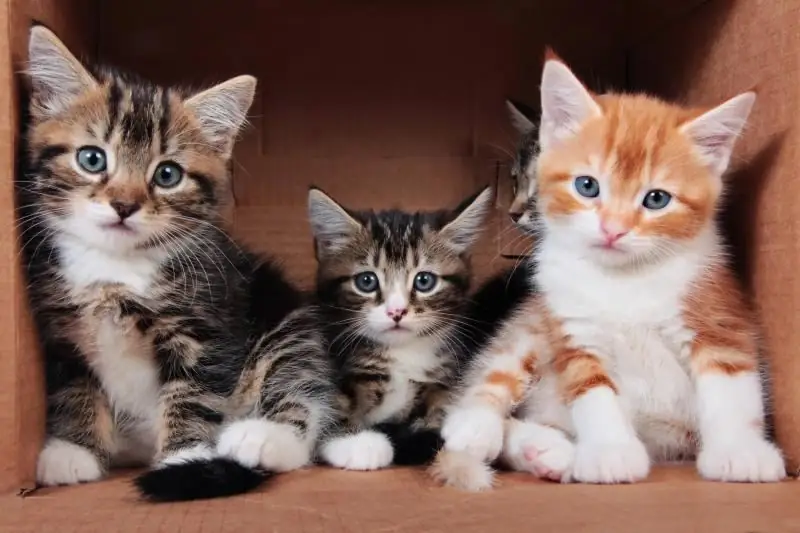
Growth stages of cats. What influences this process, what prevents it. How cats of different breeds grow. How to create conditions for the growth of a kitten. Owner reviews
The Better To Feed A Kitten: Natural Food, Ready-made Dry And Wet Food, What Foods You Can And Cannot, Feeding Rules, How Many Times A Day
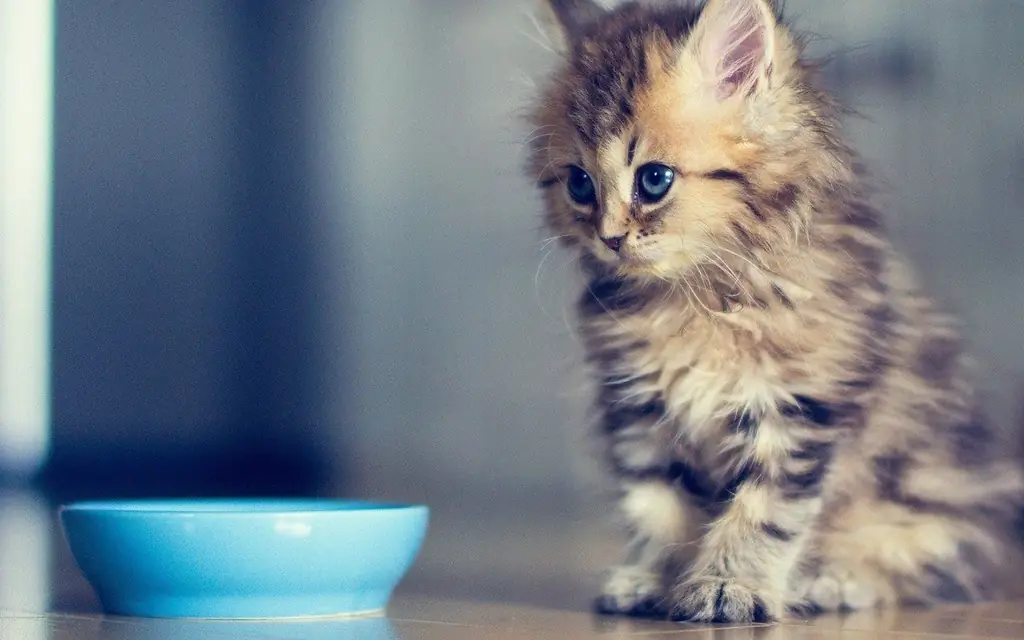
Kitten feeding rules. Veterinarian recommendations. Features for every age. Prohibited and permitted products, prepared feed. Feed reviews
The World's Oldest Domestic Cat And Cat: What Determines The Life Of A Pet, How To Extend It, Rating Of Animals - Long-livers, Photos
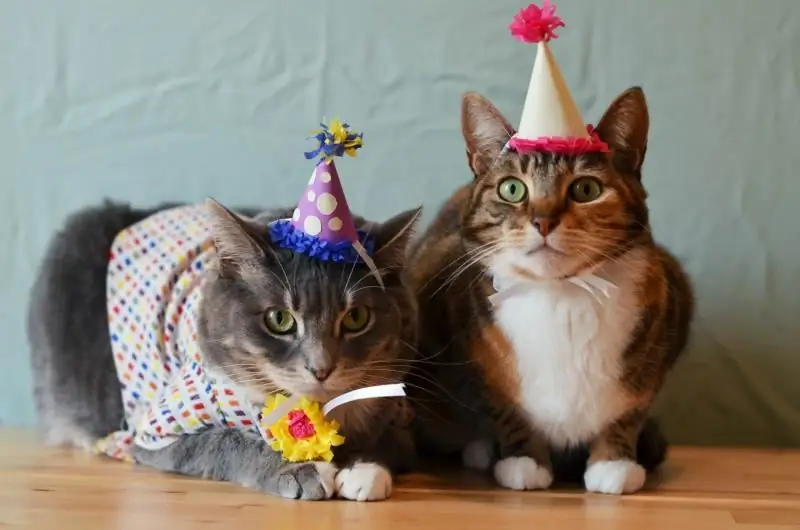
Average lifespan of cats. Rating of long-lived cats from the Guinness Book of Records. How to extend the life of a pet
How To Live Up To 100 Years In A Sober Mind And Clear Memory
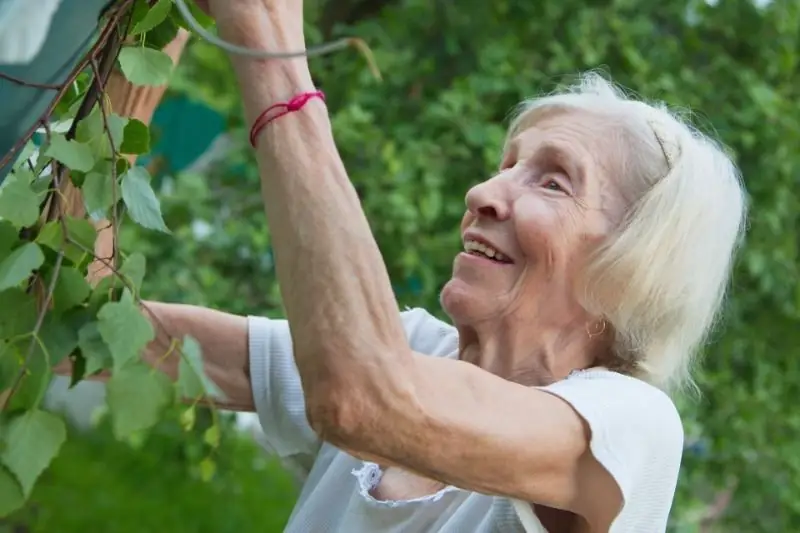
What rules and recommendations will help you maintain your health in old age
